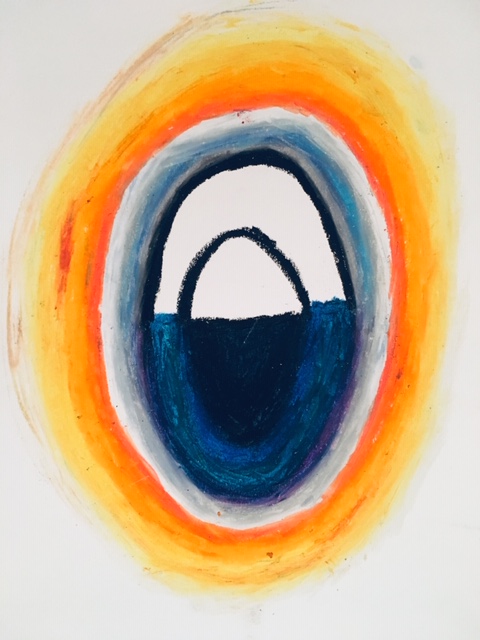PTSD And Depression: How TMS Helps
by Yakov Sherk
February 18-2024
Post-traumatic stress disorder (PTSD) is a disorder that affects people who have either experienced or witnessed a highly traumatic event/events or circumstances that may have persisted over a period of time. It’s estimated that one in 11 people will be diagnosed with PTSD at some point in their lives.
PTSD can result from bullying, violent acts, rape or sexual abuse, historical trauma, intimate partner violence, war, or repeated exposure to traumatic events, such as paramedics or police who witness extreme injuries or violence toward others on a daily basis. People affected by PTSD have disturbing thoughts, flashbacks, fear, or anger related to the traumatic event, which can impact their relationships and ability to cope with events in their lives.
There is a strong correlation between depression and PTSD, as many trauma sufferers also experience major depression, which can manifest if the trauma continues or is unaddressed.
Transcranial Magnetic Stimulation (TMS), a non-drug treatment proven to improve symptoms of major depressive disorder, can also be highly effective in treating PTSD, especially when depression is also present.
Depression can include feelings of sadness, lack of motivation, and low mood. Much like PTSD, untreated depression may affect our social functioning and ability to live a happy and productive life.
· Approximately 21 million American adults have had at least one major depressive episode.
· Major depression is more prevalent among adult females compared to males (10.3% vs. 6.2%).
· Major depressive episodes are most prevalent in adults between 18-25 years.
· Hispanic, African American, and Native Americans have a disproportionately higher incidence of PTSD vs. Caucasian individuals.
What Are the Symptoms of Depression?
Depression is a spectrum, much like many other psychological disorders. While most people will have times in their lives when they feel a little down, major depressive disorder is different.
People with major depressive disorder have symptoms that can last two weeks or more. During this time, they may withdraw from social activities, lose interest in doing the things they once loved, find it challenging to stay focused at work or school, and experience changes in eating habits, either overeating or losing their appetite. They may feel hopeless, helpless, and worthless, and some may experience suicidal thoughts or engage in self-harm.
What are the Symptoms of Post-Traumatic Stress Disorder?
Post-traumatic stress disorder is a type of anxiety disorder resulting from a single traumatic event or repeated exposure to a traumatic event or circumstance. PTSD triggers can include physical or psychological abuse or sexual violence. Survivors of PTSD might experience extreme fearfulness that causes them to live in a constant state of anxiety, which, in extreme cases, can make it almost impossible to function in daily life. The individual may re-experience symptoms associated with the trauma, including hypervigilance, avoidance, flashbacks, nightmares, anger, and other negative manifestations of mood or cognition.
Are Depression and Trauma Related?
A single, identifiable event can cause depression, or it might manifest over time. Sometimes, it seems to come on out of the blue and may require therapy to unpack causal factors leading up to the onset. Many depression symptoms overlap with those of PTSD. In both cases, the individual may have trouble sleeping or staying focused while awake. They may not want to interact with other people and may experience anxiety and irritability at work, school, or even at home.
If you are experiencing any of the above symptoms and are concerned you might have PTSD, it is vital to obtain a proper diagnosis so you can access the treatment you need to feel better. While those struggling with PTSD often have depression, depression is not always caused by PTSD.
TMS can be highly effective in treating depression. When combined with other types of trauma therapies, like cognitive behavioral therapy (CBT) and cognitive processing therapy (CPT), patients can expect sustainable relief without the side effects associated with psychotropic medications.
How TMS Helps PTSD
Research shows that certain therapeutic approaches are effective for both depression and PTSD. Because symptoms of PTSD and depression often overlap, PTSD treatment may also improve symptoms of depression. Some doctors may prescribe a type of medication called a selective serotonin reuptake inhibitor (SSRI) for depression and PTSD. However, although these drugs are usually well-tolerated, there are side effects to consider.
TMS is a non-drug in-office procedure that is FDA-approved to treat major depression. Combining TMS with psychotherapy has shown excellent results for patients with PTSD, especially when medications have failed to produce significant results. Many patients with PTSD have a dual diagnosis of depression and PTSD. In these cases, we will work with you to treat both.
In most cases, insurance will cover treatments for depression, and our office is happy to work with you to determine your coverage. To find out more, call 614-768-2700 ext. 103 or email us at tmsreferral@acfpclinic.com.

Recent Posts
- Alternative Treatment Options for Depression.
- Patients With Post-Stroke Depression May Benefit from Repetitive Transcranial Magnetic Stimulation (TMS).
- Insurance Guidelines for Transcranial Magnetic Stimulation (TMS) Treatment.
- PTSD And Depression: How TMS Helps
- Major Depression and Transcranial Magnetic Stimulation
- Compare and discover the absurd
- 3 Things to Know About Transcranial Magnetic Stimulation (TMS)
- Открытая путь в мир онлайн казино: квалифицированные советы и топовые рекомендации от портала Casino Zeus
- ADHD and Attention
- What should I do if I suspect that my child has a disability or requires an IEP?
